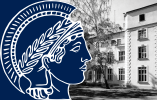Quantum Networks: Research strategies and research politics in the emergence of quantum physics.
Quantum History Project, MPIWG, Berlin
June 13-16, 2006
Idea of the workshop
In the course of planning the current collaborative volume of the quantum project, it became clear that we could not pay sufficient attention to the institutional and social aspects of the story without exploding the book project. On the other hand, we already have two substantial papers by Alexei Kojevnikov and by Giuseppe Castagnetti and Hubert Goenner from the previous project on history of quantum mechanics that we want to publish in a suitable way. Therefore the idea emerged to take those two papers as the starting point for a new project concentrating on the role of networks and institutions in the development of quantum mechanics and on their own transformation by the quantum revolution. Concretely, we would like to publish in the near futute the existent papers with a programmatic introduction, and then continue the research and publish a second part with more contributions in a few years. The workshop will get together the authors of the existent papers with interested members from our group and possible collaborators to discuss the shape that the research program could take and formulate its aims. We ask the participants to read the accompanying papers by Kojevnikov, Castagnetti/Goenner, Eckert, Schirrmacher, and Renn, and to think about their own position on the questions that we have proposed below, but also consider the “metaquestion” whether these are questions that are suitable to direct the research project, and whether other questions should be asked.
Time Schedule
Tue, Aug 4
10 am Introduction
10:45 am Discussion of paper by Alexei Kojevnikov
12 noon Lunch
2 pm Discussion of paper by Castagnetti and Goenner
3:15 Discussion of papers by Michael Eckert
4:30 Coffee break
5:00 Discussion of paper by Arne Schirrmacher
6:15 End
Wed, Aug 5
10 am General discussion (see questions below)
1 pm Lunch
3 pm Formulation of points for a research program and identification of topics for the volume to be published.
6 pm End
Discussants
Jürgen Renn, MPIWG
Christoph Lehner, MPIWG
Dieter Hoffmann, MPIWG
Giuseppe Castagnetti, MPIWG
Massimiliano Badino, MPIWG
Horst Kant, MPIWG
Christian Joas, MPIWG
Martin Jähnert, MPIWG
Bretislav Friedrich, FHI
Arianna Borrelli, FHI
Jeremiah James, FHI
Ed Jurkowitz, FHI
Don Salisbury, Austin College
Alexei Kojevnikov, University of British Columbia
Michael Eckert, Deutsches Museum
Dieter Fick, Uni Marburg
Arne Schirrmacher, Deutsches Museum
Jaume Navarro, University of Cambridge
Marta Jordi, University of Barcelona
Maja Fjaestad, KTH Stockholm
Questions for Workshop Discussion
What were the questions that the actors were trying to address and what was their perspective and background? How did they see these questions connected to a “quantum theory”? Specifically: What were the research programs they were following?
Which were the relevant networks for the actors and how important were they for the development of the theory?
Which were the institutional settings in which the actors worked and which were their benefits and drawbacks for the work on the emerging quantum physics?
What institutional changes happened in connection with the emergence of quantum physics?
How did individuals position themselves in relation to the institutions and networks? How did they attempt to stay in the loop and how did they try to defend their individual positions? How does the way physicists practice their research (individually, collectively, within a hierarchical structure) change in connection to the emergence of quantum physics.
How important was the mobility of researchers and which were the factors favoring or hindering it?
How does the relationship between theory and experiment change on the institutional level and within individual research programs?
How does the relationship between physics and mathematics change on the institutional level and within individual research programs?
What kinds of exchanges defined the networks and how did the exchanges change (oral vs. written communication, postdocs, visiting professors)?
How can we conceptualize historiographically the relation between the institutions and the content of science (and the relation between the two volumes)?





